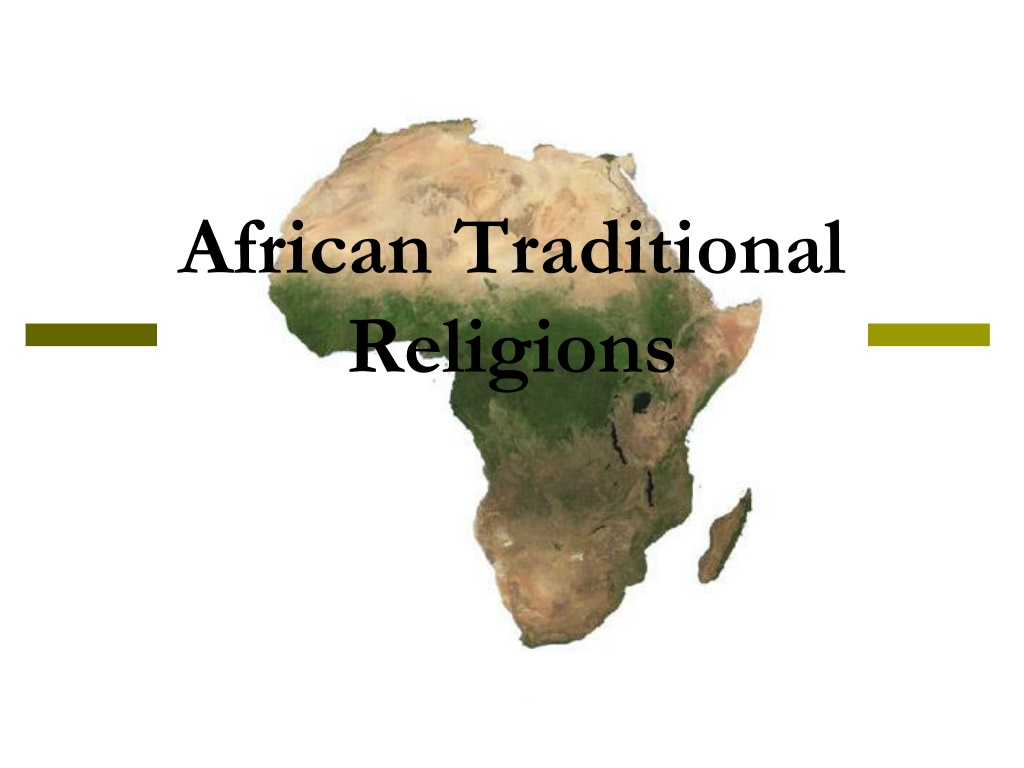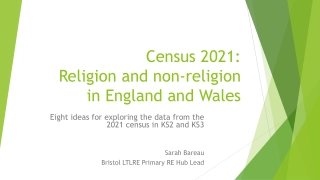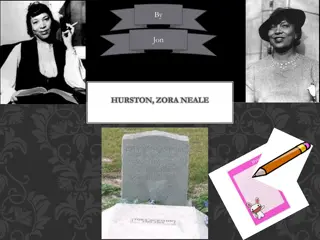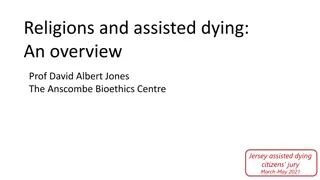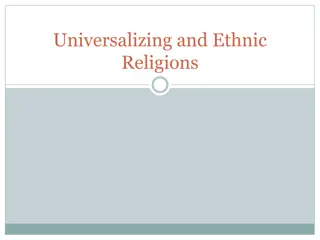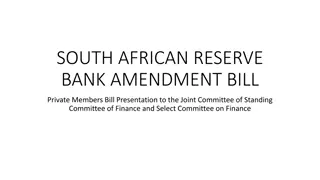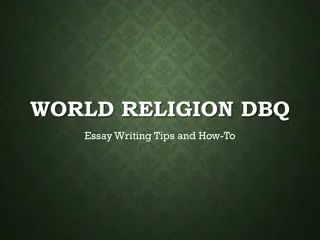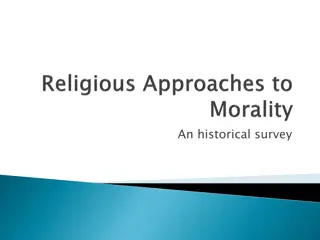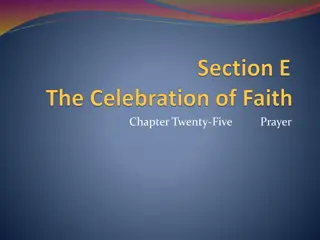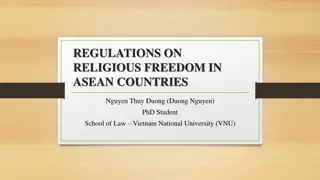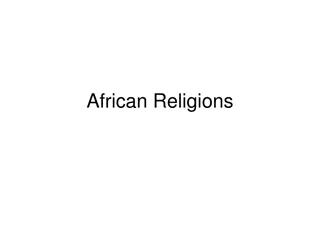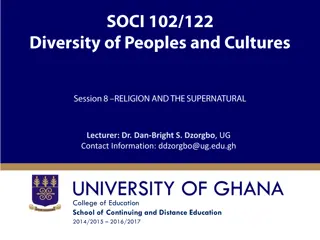Understanding African Traditional Religions
Explore the complexities of African traditional religions, debunk Western stereotypes, and delve into the beliefs in high gods, lesser spirits, and ancestors. Discover the spiritual practices, worship rituals, and moral code that shape the diverse religious landscape across Africa.
Download Presentation

Please find below an Image/Link to download the presentation.
The content on the website is provided AS IS for your information and personal use only. It may not be sold, licensed, or shared on other websites without obtaining consent from the author. Download presentation by click this link. If you encounter any issues during the download, it is possible that the publisher has removed the file from their server.
E N D
Presentation Transcript
African Traditional Religions
The Complexities of Africa 900 million people 3,000 Ethnic and Linguistic Groups Social organizations range from small tribes to vast empires Centuries of European colonialism changed the content and structure of many traditional African religions
Western Stereotypes Stereotypes threaten to distort the reality of African religion Misconception of a dark land of savagery and superstition Misguided thought of Africa is a unified whole
Keep in mind There is no single religion, theology, worldview, or ritual system that unites all of Africa There is a lack of written records from the pre-modern Native Africans which limits our range and depth of studies We must remember the bias and interpretations of foreign cultures in Africa
Native Religions Most African religions have a belief in a high god. This high god is distant, retired, and uninvolved.
The Lesser Spirits Most African religions are animistic, believing that the world is full of lesser spirits. Lesser spirits rule creation and can be helpful or harmful. Lesser spirits are subject to prayer, flattery, and sacrifice.
More on the lesser spirits Plants, animals, weather, water, the Earth all things are spirits or life forces Lesser spirits are often personified in Gods or Goddesses The most common worship is offering food and drink.
Ancestors Ancestors are recognized as spiritual forces. The dead enter into a spirit world and remain active in the lives of the living. The dead as a cloud of witnesses
More on Ancestors The living consult, pray to the dead to receive benefits and avoid harm The fear of gods is unimportant compared to the fear of and respect for ancestors Ancestors enforce the moral code Worst punishment by ancestors is infertility on a couple Ancestor spirits know and can control the future
More on Ancestors Efforts to appease the ancestor spirits includes offering gifts, sacrifices, rituals, and consultations. Ancestors contact the living often in dreams Diviners have the ability to contact ancestors
Sacrifice Most common is a daily offering of food and drink Animal sacrifice is practiced on serious occasions Human sacrifice is rarely present in African religions
Rites of Passage Birth of child Blessing bestowed by the spirit world
Puberty: Initiation into the norms of social behavior Initiation rituals for boys and girls differ and are often long and severe Ritual circumcision for boys: test of courage and a bodily sign of their religious and cultural identity Ritual circumcision for girls: no clear rationale and is less and less common in modern Africa
Yao Tribe To most African communities, facing the knife is akin to being a real man . Male circumcision is an important rite of passage that moves the young man that undergoes it a notch higher towards marriage and earns him a respectable position in society.
Marriage Chastity in marriage is highly valued Polygamy is practiced by elites of many societies
Death Making the dead comfortable in their new existence to prevent hauntings Rapid burial Dead can point out who caused their demise Lack a system of belief in judgment and retribution after death
A Death Ritual During an African burial, an animal would often be sacrificed. They believed that it was a respectful thing to do and that it served as food on their long journey to the heavens. Most of the time they would give sacrifice of an ox, if the person was the last living in their family the ox would help take them to the afterlife. Africans were also buried with their personal possessions. Africans could only refer to some one as dead if they were the last one in their family to die.
Religious Leaders Generally a minimal need for priests because rituals are performed by individuals Some Western African religions have priests & priestesses for maintaining temples and altars
Spiritual Curers are Common Illnesses have religious and natural causes Curers use divination to find the cause Curers combine herbs, offerings, and spiritual powers Curers cleanse houses of spells, witches, and curses Diviners, healers, exorcists are closely related
Prophets Speak the words of gods in times of crisis
The Chief King Most African societies lack monarchy Societies with monarchies revere the king and queen as representatives on ancestors or gods
Non-native African Religions Ancient Greeks religion influenced North Africa and Egypt Christianity and Judaism have been present in Africa since the 1stcentury Hinduism, Buddhism, and Baha i brought to Africa by immigrants
African Religions Today Colonialism, artificial nation states, urbanization, HIV/AIDS, political instability,and rapid population growth upset the traditional social orders of traditional religion Traditional African religious practices have diminished, but have not been eliminated
Rise of Christianity & Islam challenges traditional African religions Lesser spirits and ancestors become Christian Saints or Muslim Jinn Syncretistitc movements combining African Christian, and/or Islamic beliefs and rituals are increasingly present Prosperity Gospel
